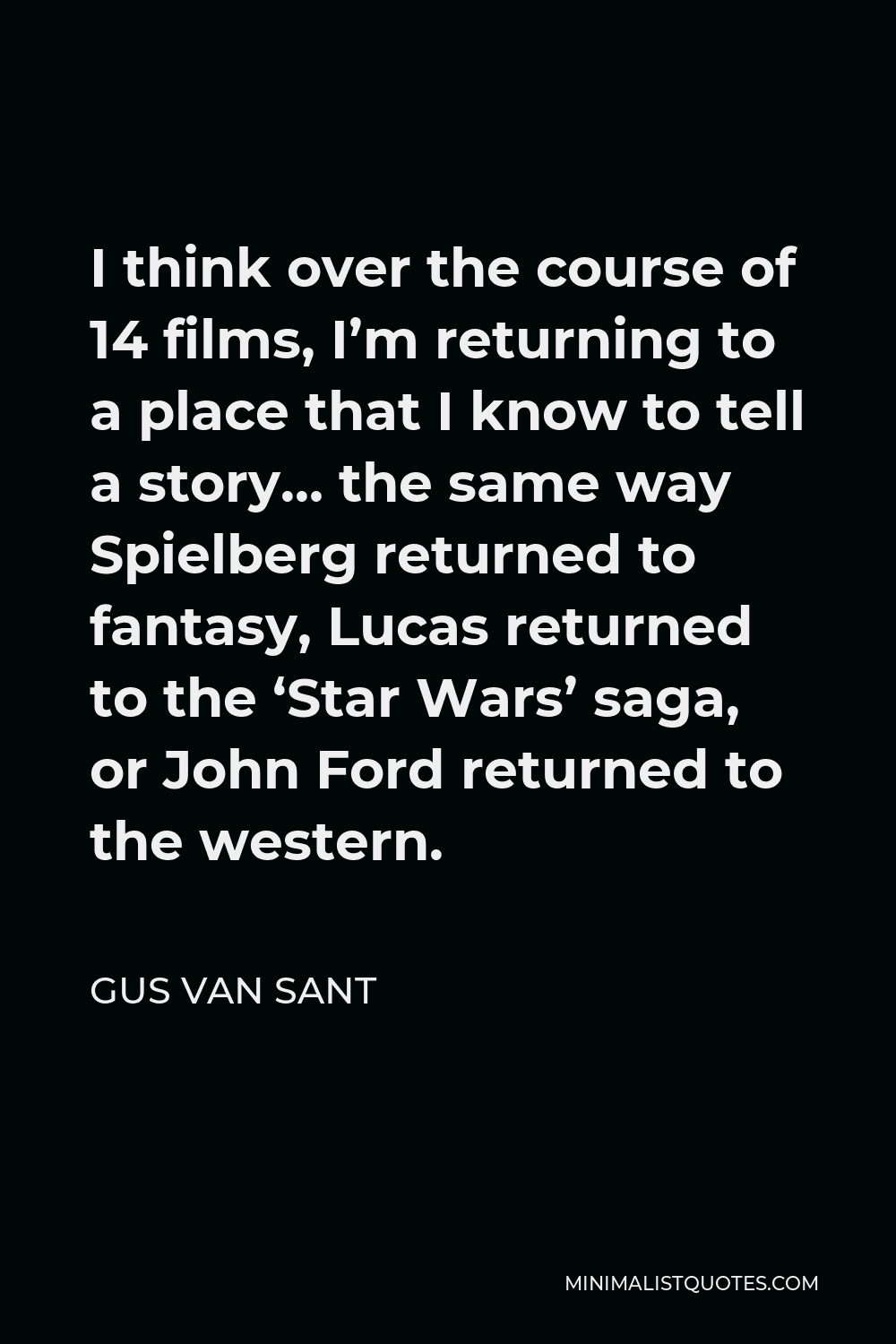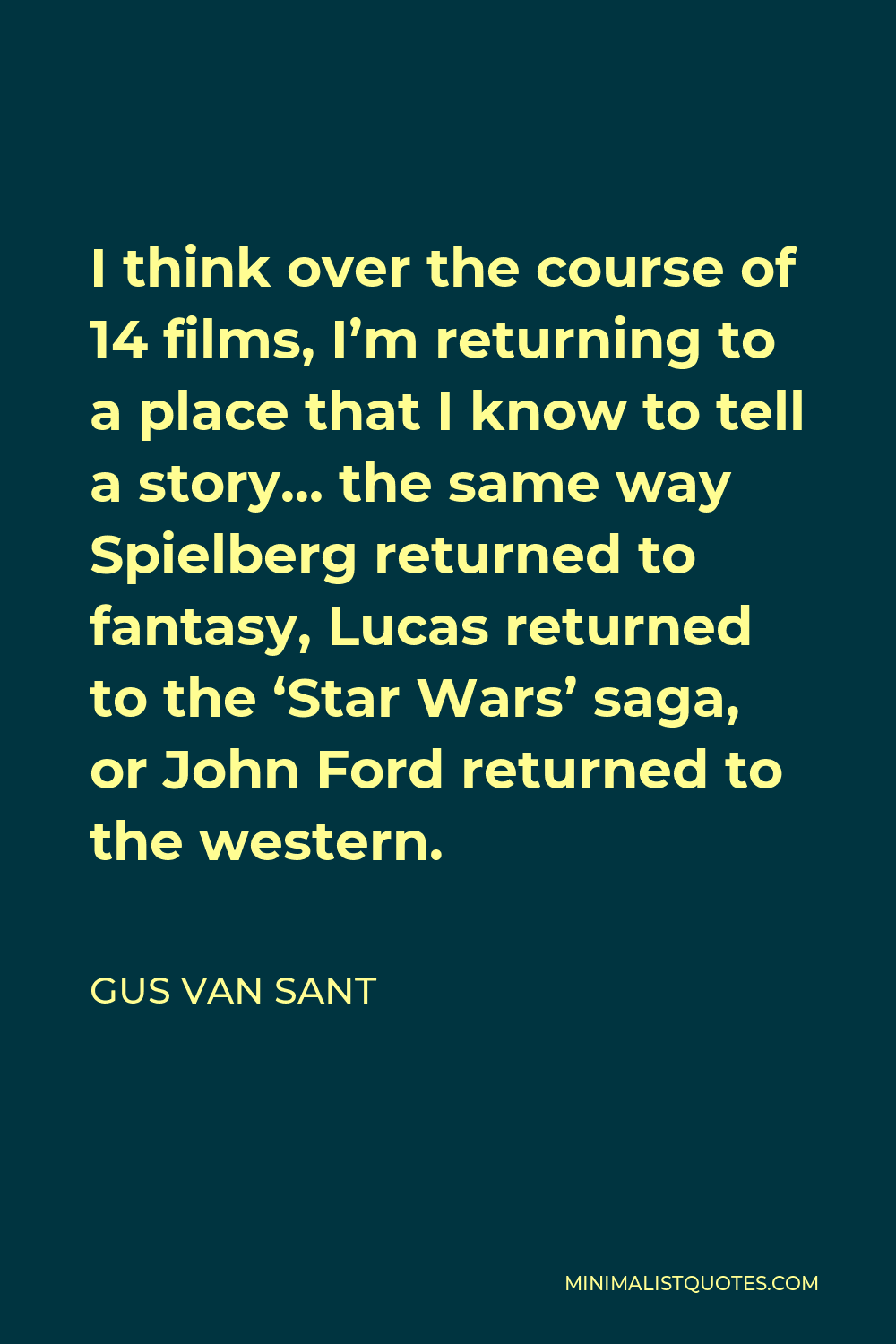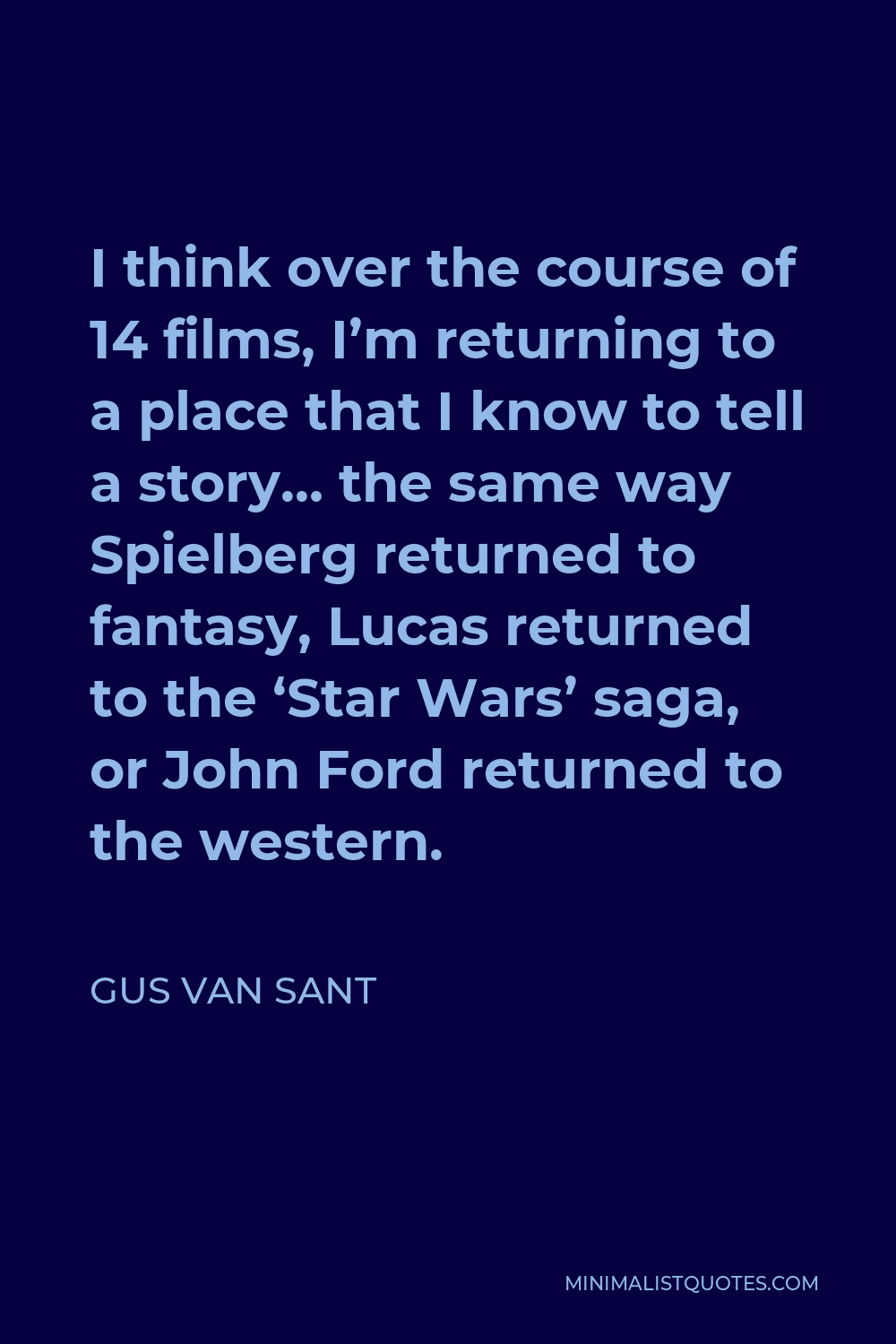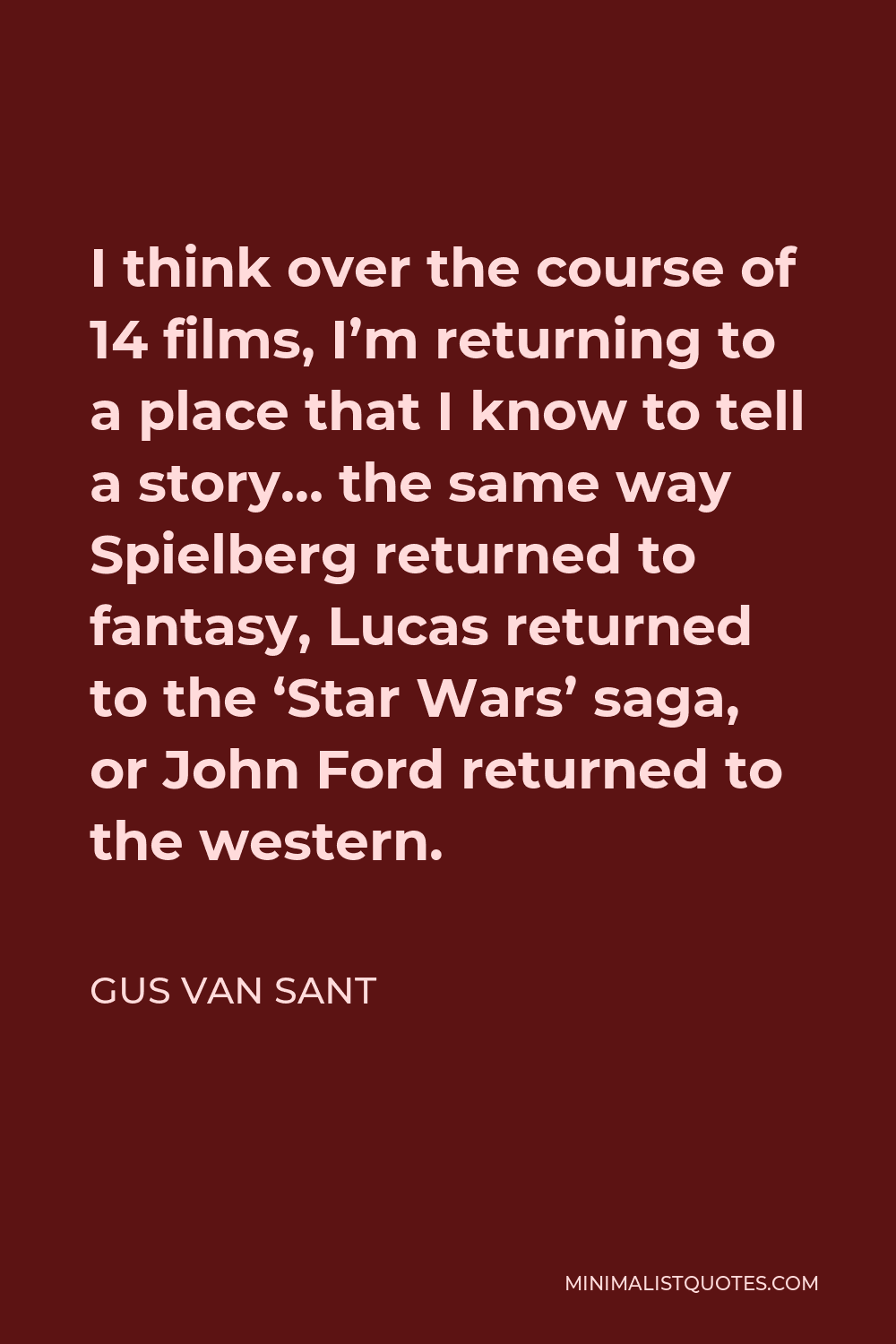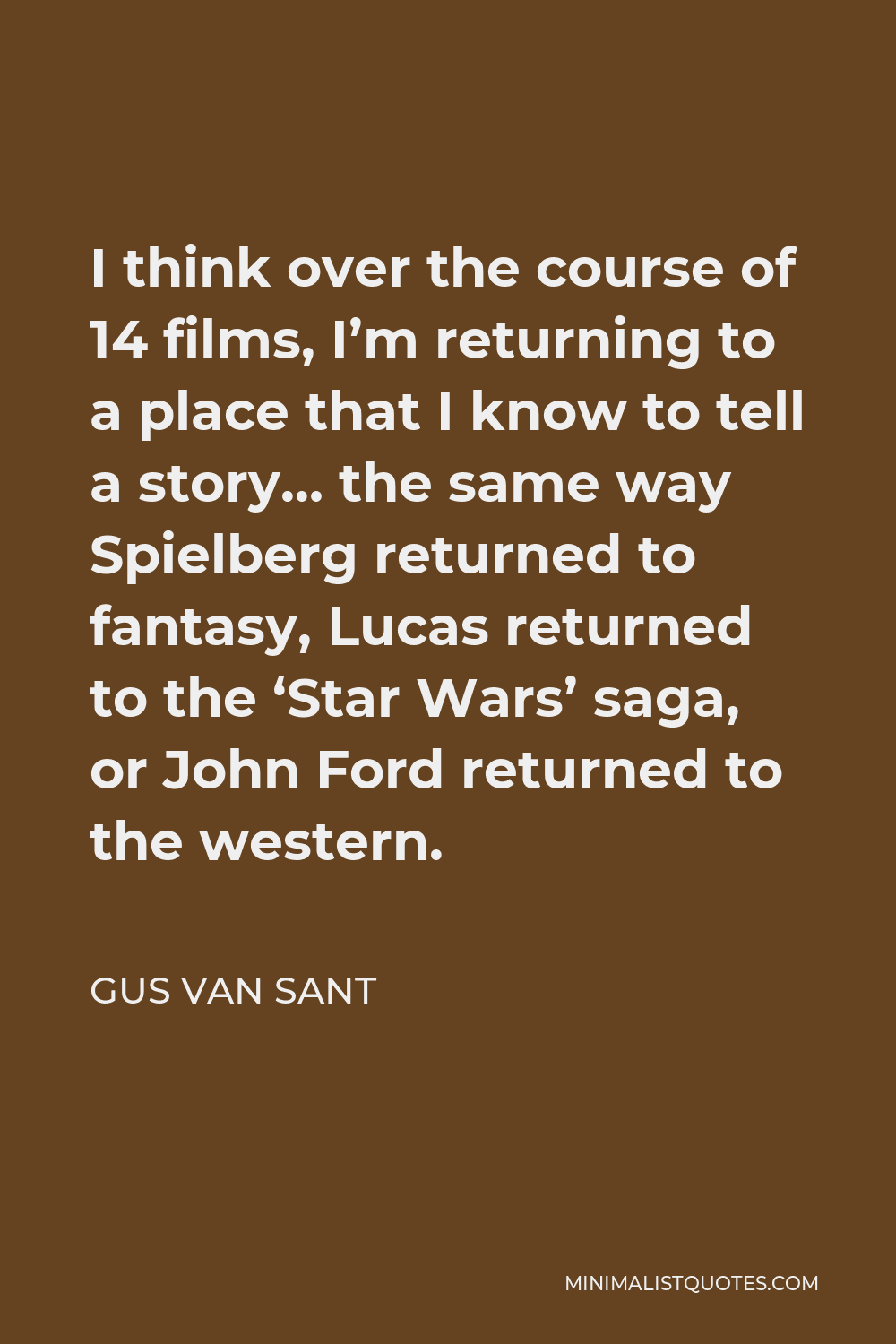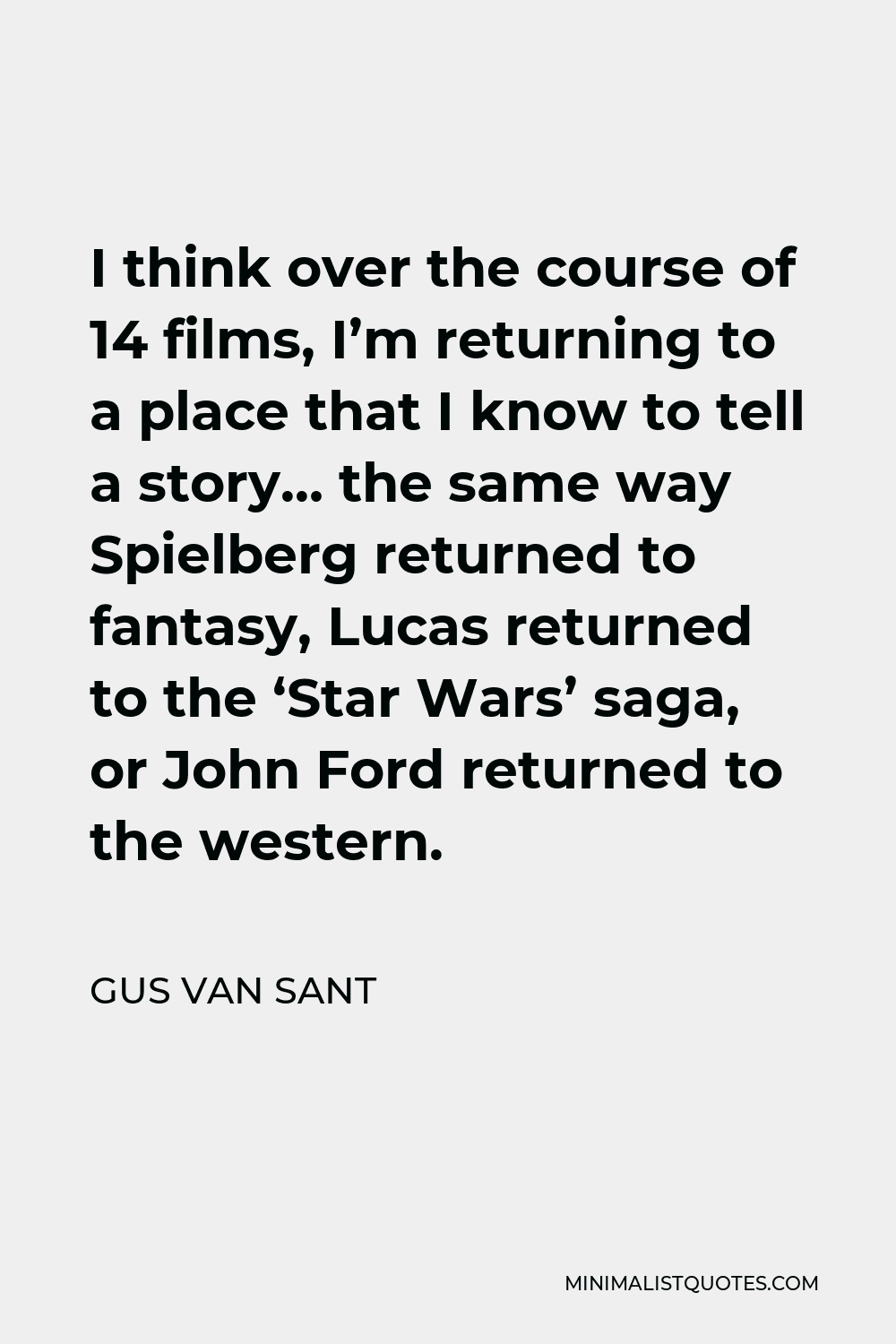I’d come into filmmaking as a painter so, for me, making ‘Good Will Hunting’ was experimental because I didn’t know how to do it.
GUS VAN SANTI think over the course of 14 films, I’m returning to a place that I know to tell a story… the same way Spielberg returned to fantasy, Lucas returned to the ‘Star Wars’ saga, or John Ford returned to the western.
More Gus Van Sant Quotes
-





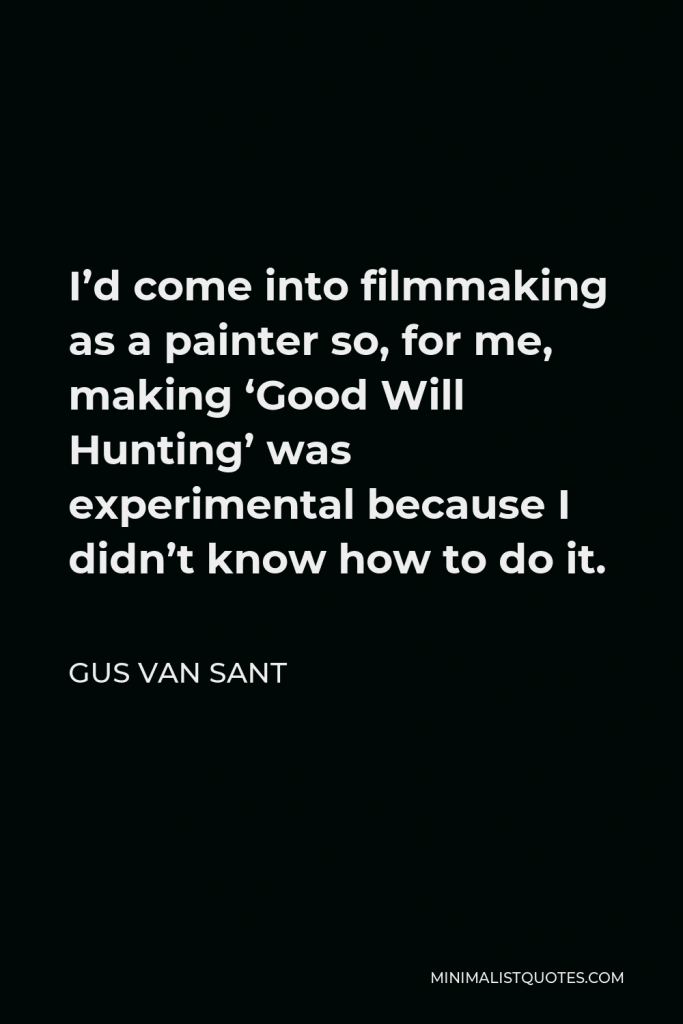

-





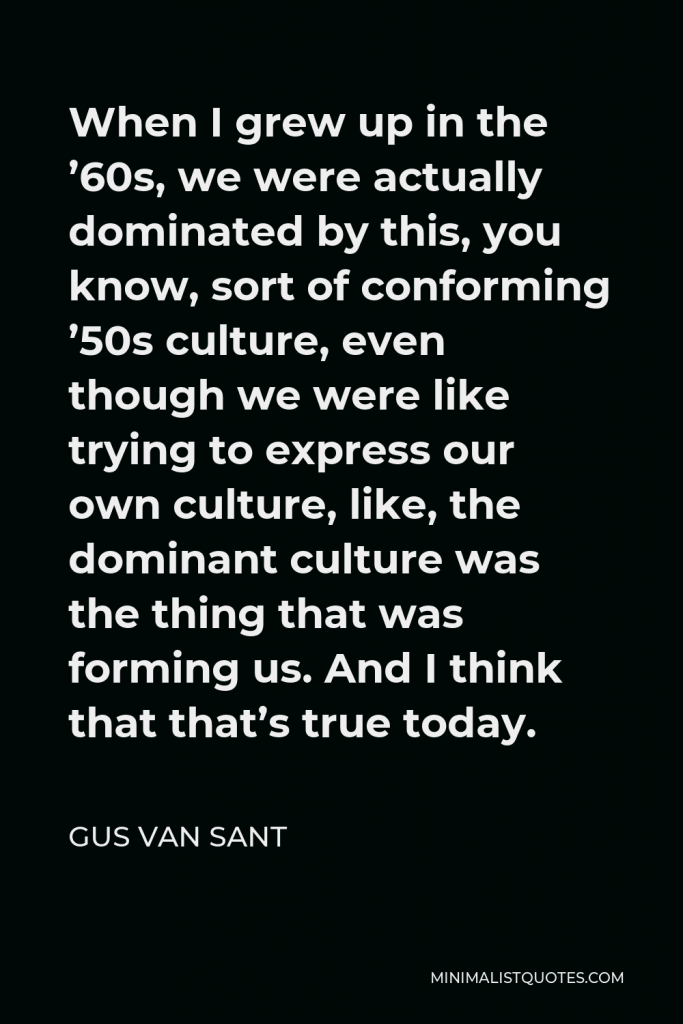

When I grew up in the ’60s, we were actually dominated by this, you know, sort of conforming ’50s culture, even though we were like trying to express our own culture, like, the dominant culture was the thing that was forming us. And I think that that’s true today.
GUS VAN SANT -





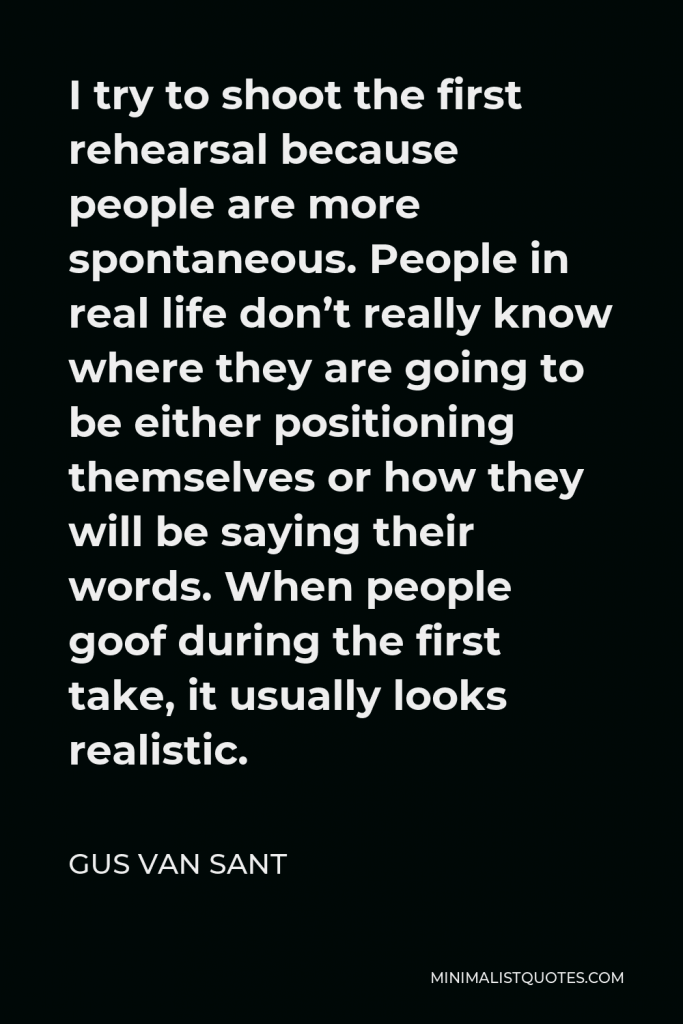

I try to shoot the first rehearsal because people are more spontaneous. People in real life don’t really know where they are going to be either positioning themselves or how they will be saying their words. When people goof during the first take, it usually looks realistic.
GUS VAN SANT -





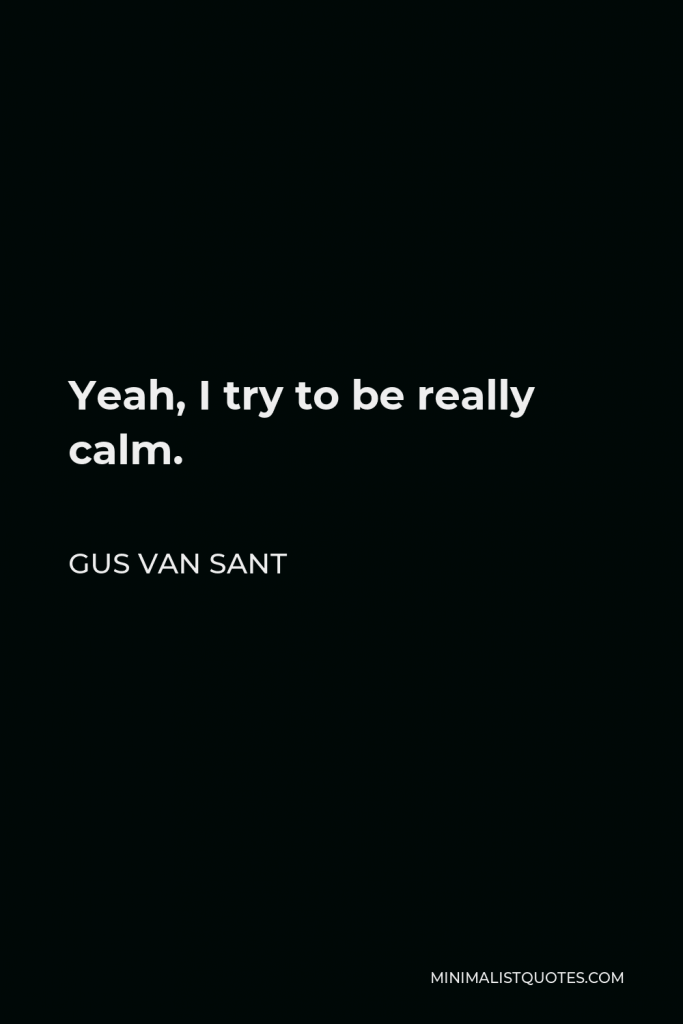

Yeah, I try to be really calm.
GUS VAN SANT -





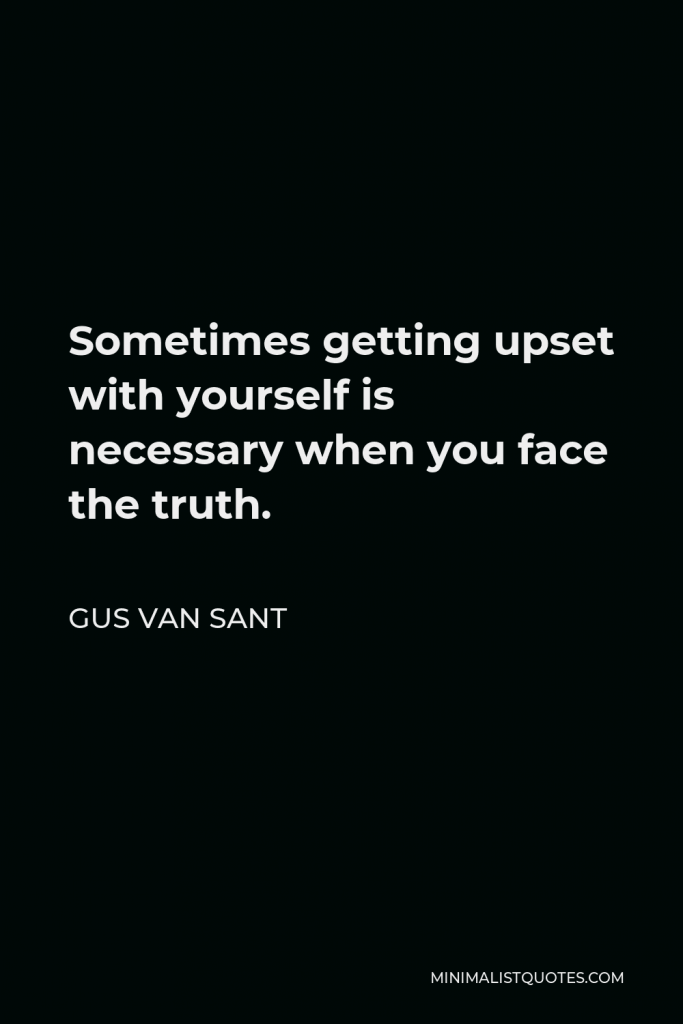

Sometimes getting upset with yourself is necessary when you face the truth.
GUS VAN SANT -





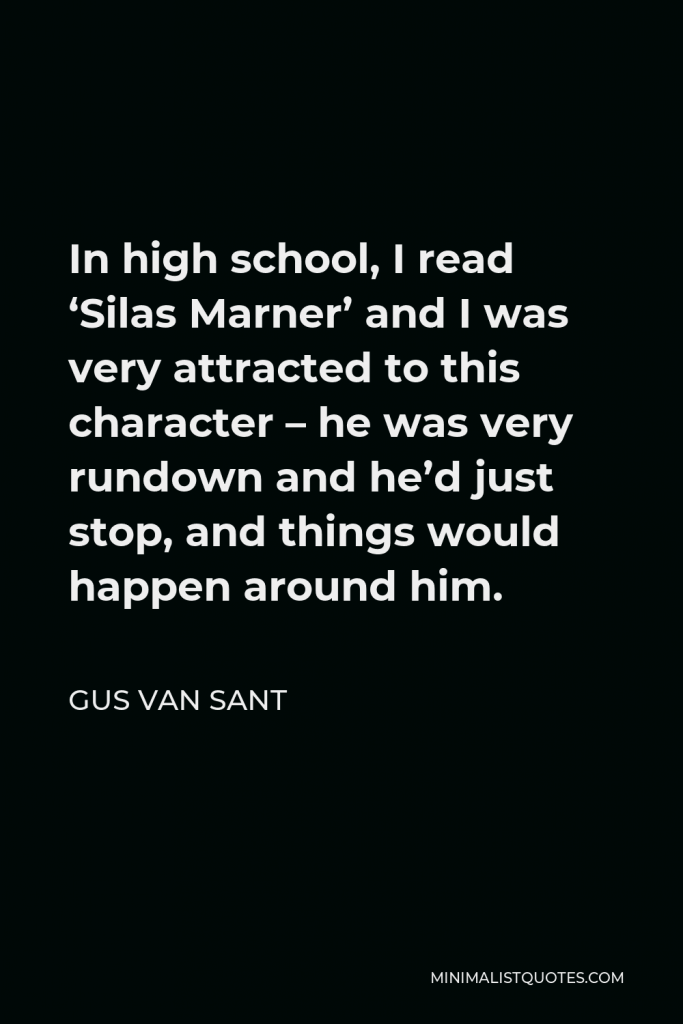

In high school, I read ‘Silas Marner’ and I was very attracted to this character – he was very rundown and he’d just stop, and things would happen around him.
GUS VAN SANT -





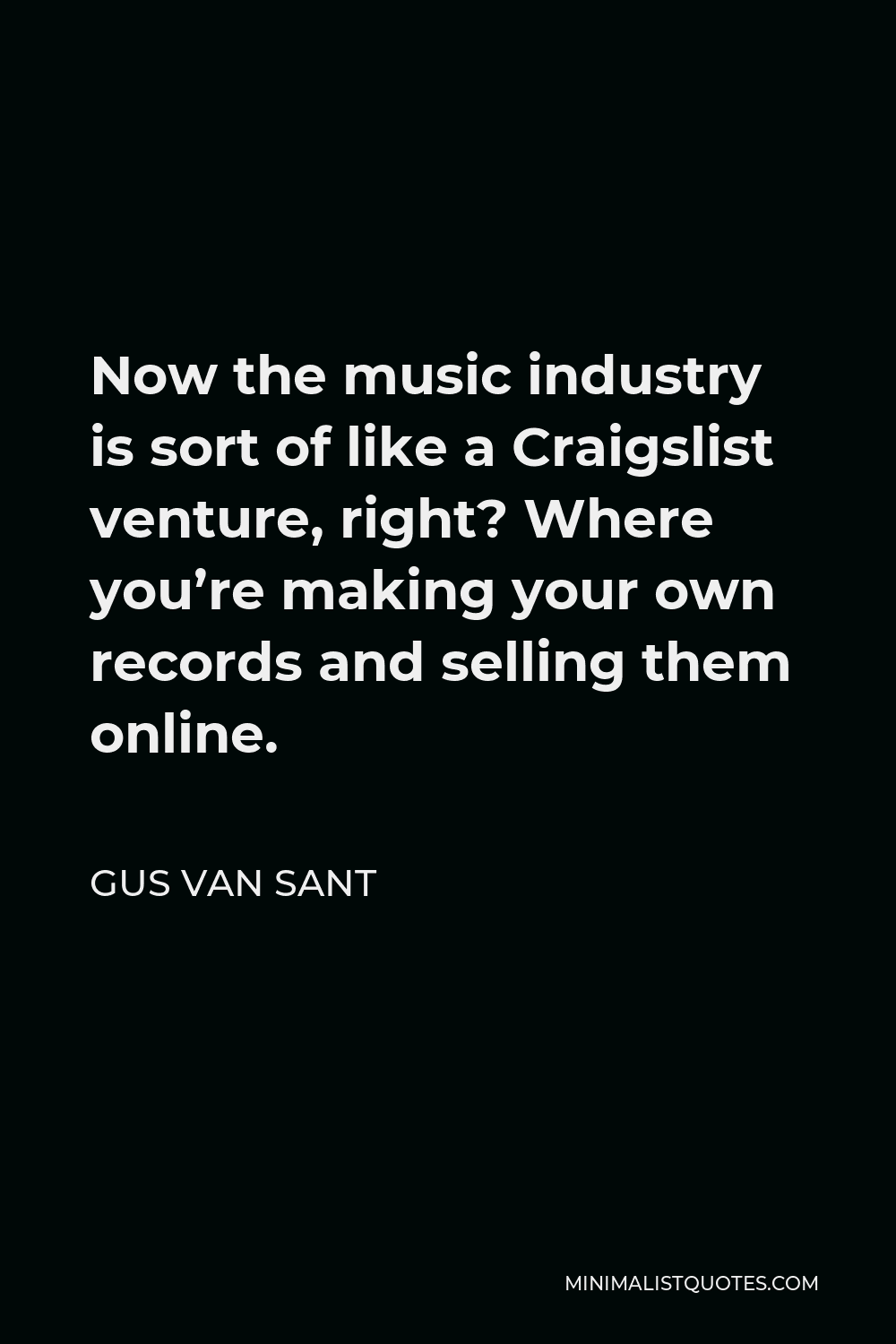
Now the music industry is sort of like a Craigslist venture, right? Where you’re making your own records and selling them online.
GUS VAN SANT -





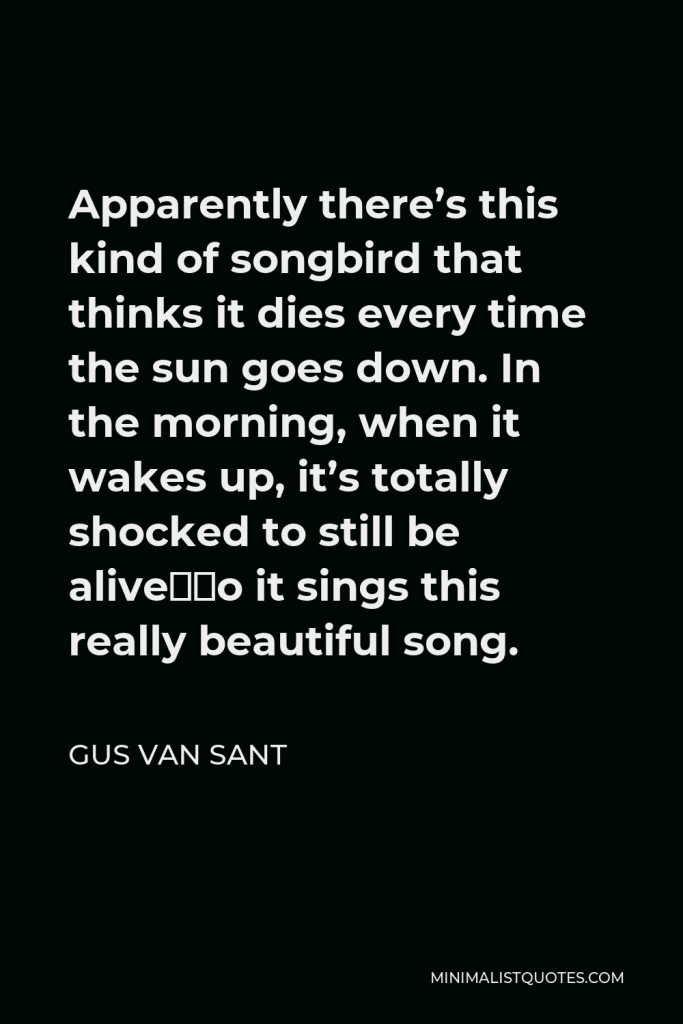

Apparently there’s this kind of songbird that thinks it dies every time the sun goes down. In the morning, when it wakes up, it’s totally shocked to still be alive—so it sings this really beautiful song.
GUS VAN SANT -





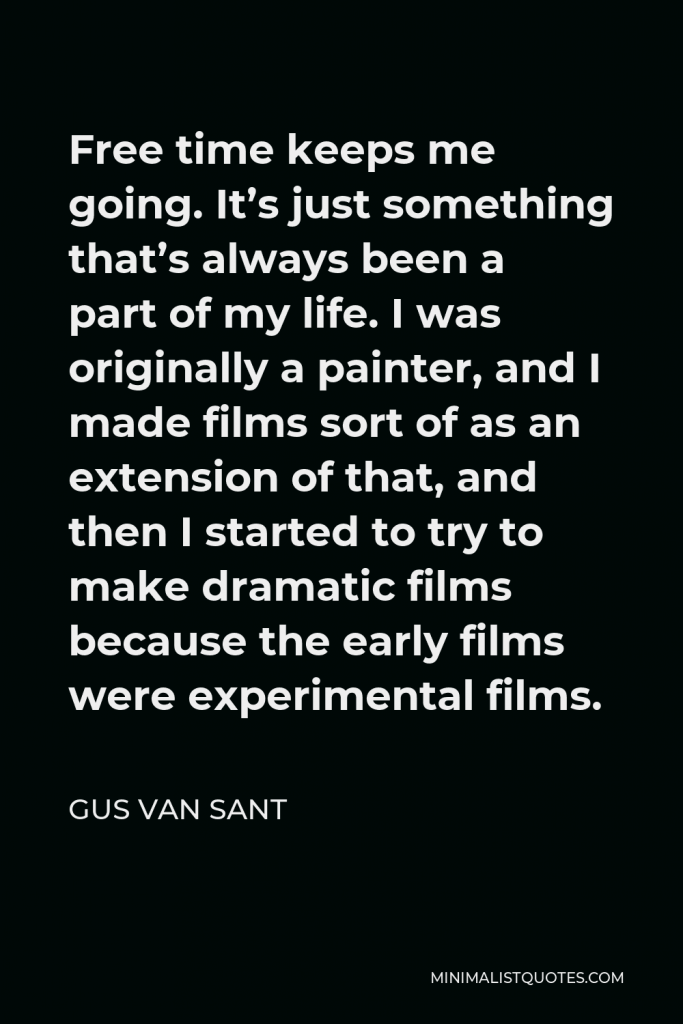

Free time keeps me going. It’s just something that’s always been a part of my life. I was originally a painter, and I made films sort of as an extension of that, and then I started to try to make dramatic films because the early films were experimental films.
GUS VAN SANT -






Everything’s changing so fast that it’s sometimes hard to keep up.
GUS VAN SANT -





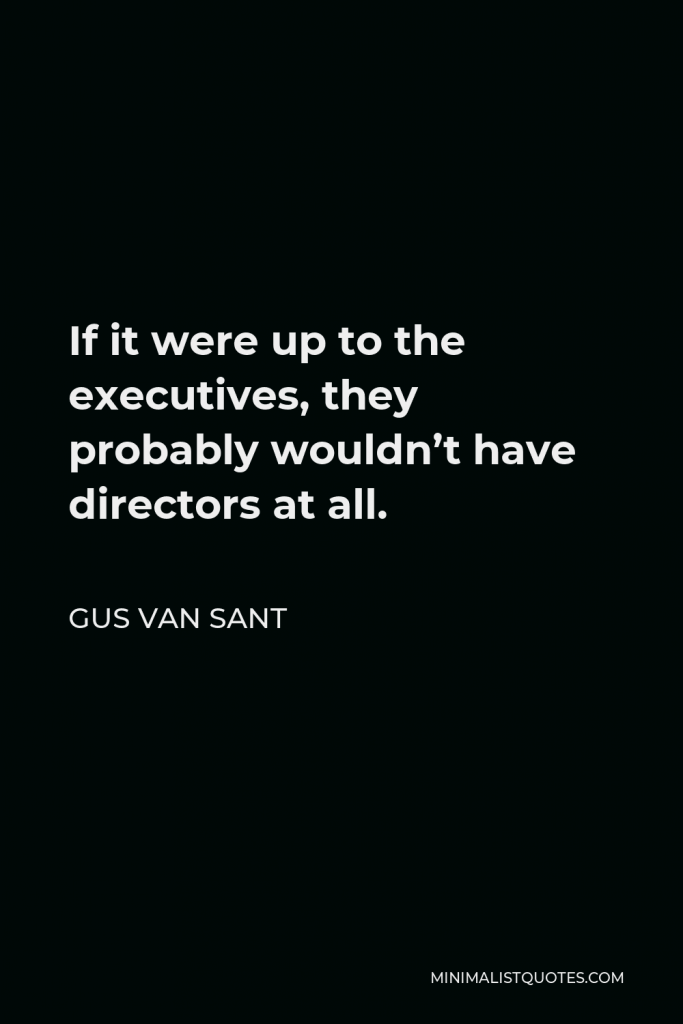

If it were up to the executives, they probably wouldn’t have directors at all.
GUS VAN SANT -





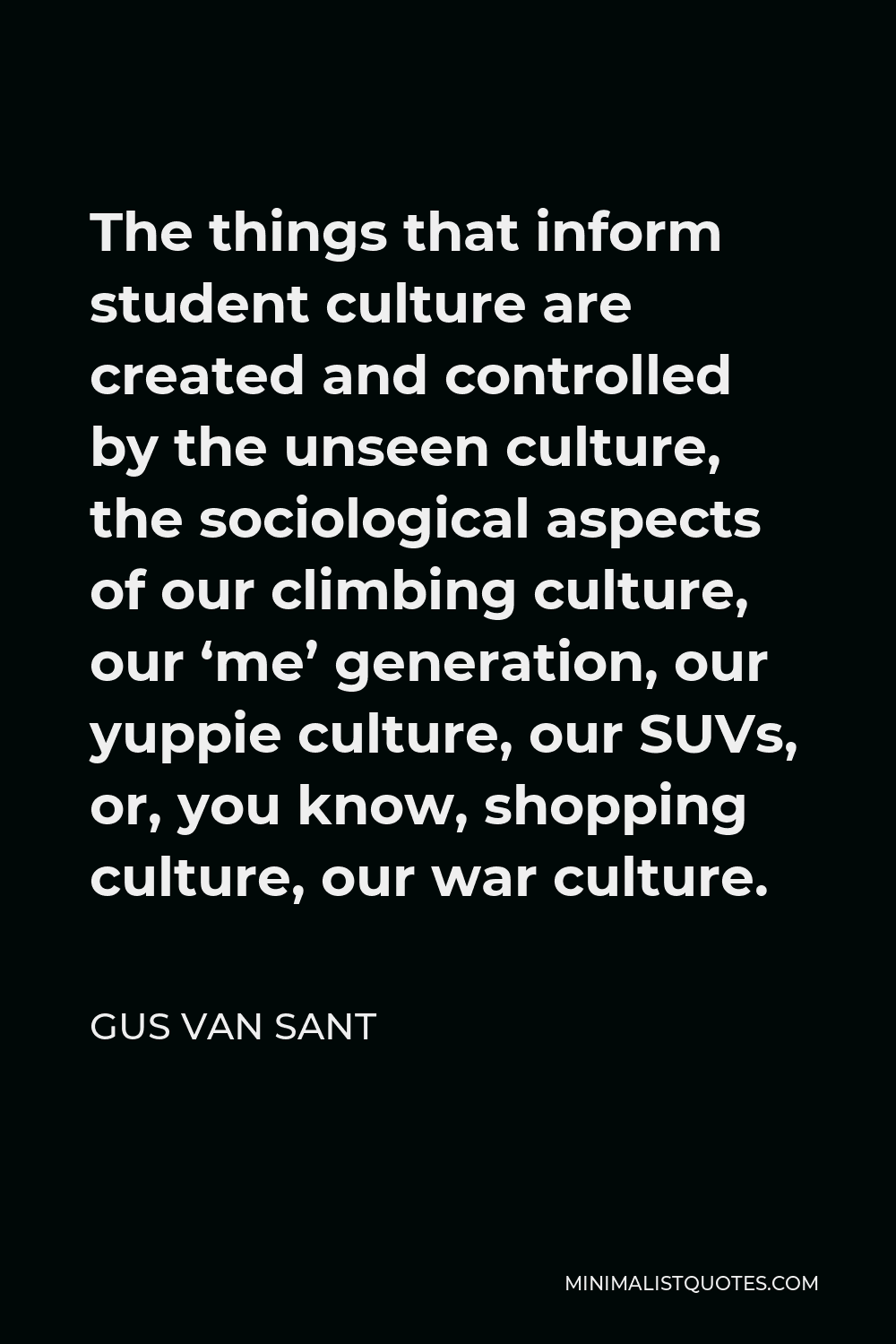
The things that inform student culture are created and controlled by the unseen culture, the sociological aspects of our climbing culture, our ‘me’ generation, our yuppie culture, our SUVs, or, you know, shopping culture, our war culture.
GUS VAN SANT -





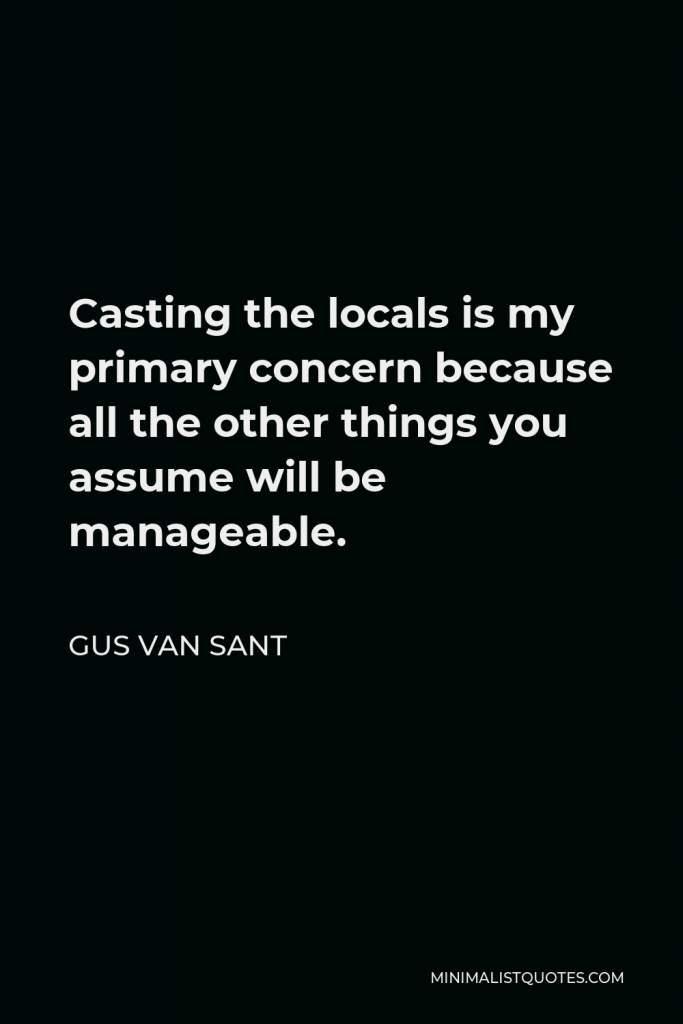

Casting the locals is my primary concern because all the other things you assume will be manageable.
GUS VAN SANT -





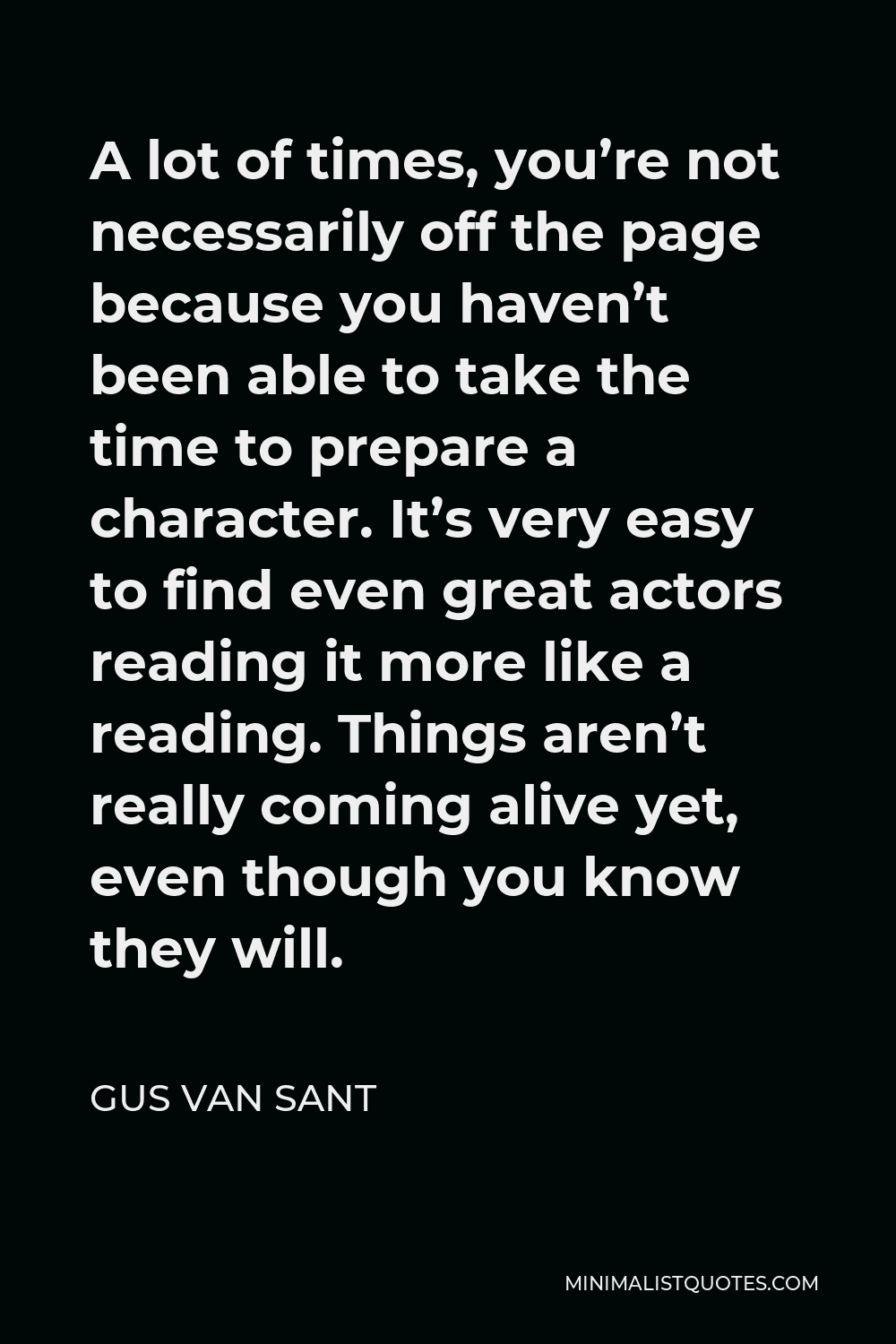
A lot of times, you’re not necessarily off the page because you haven’t been able to take the time to prepare a character. It’s very easy to find even great actors reading it more like a reading. Things aren’t really coming alive yet, even though you know they will.
GUS VAN SANT -





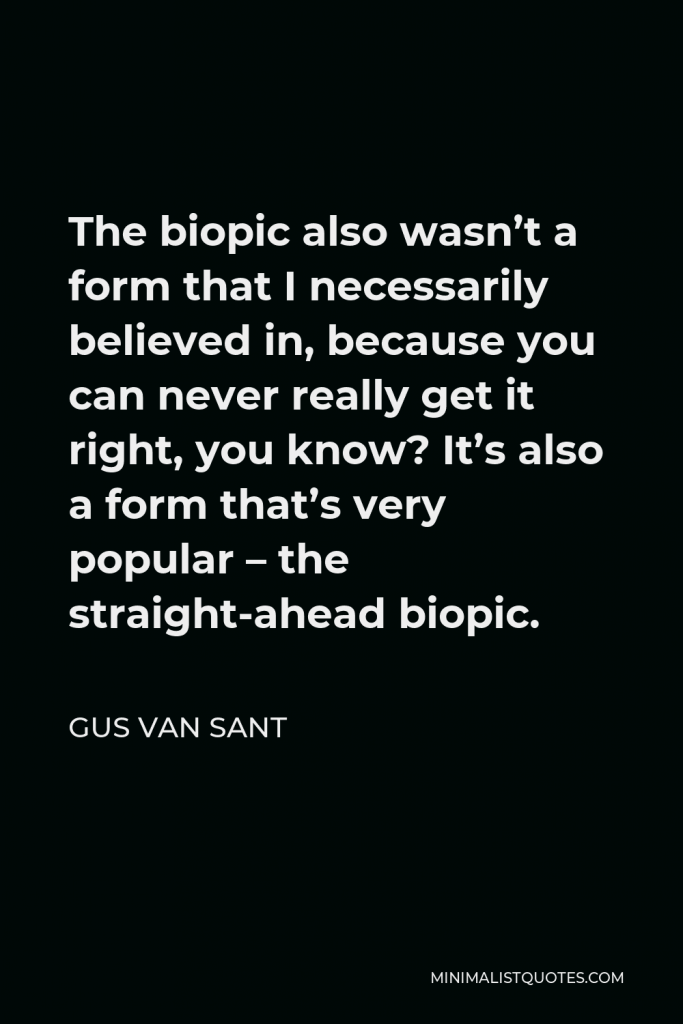

The biopic also wasn’t a form that I necessarily believed in, because you can never really get it right, you know? It’s also a form that’s very popular – the straight-ahead biopic.
GUS VAN SANT -





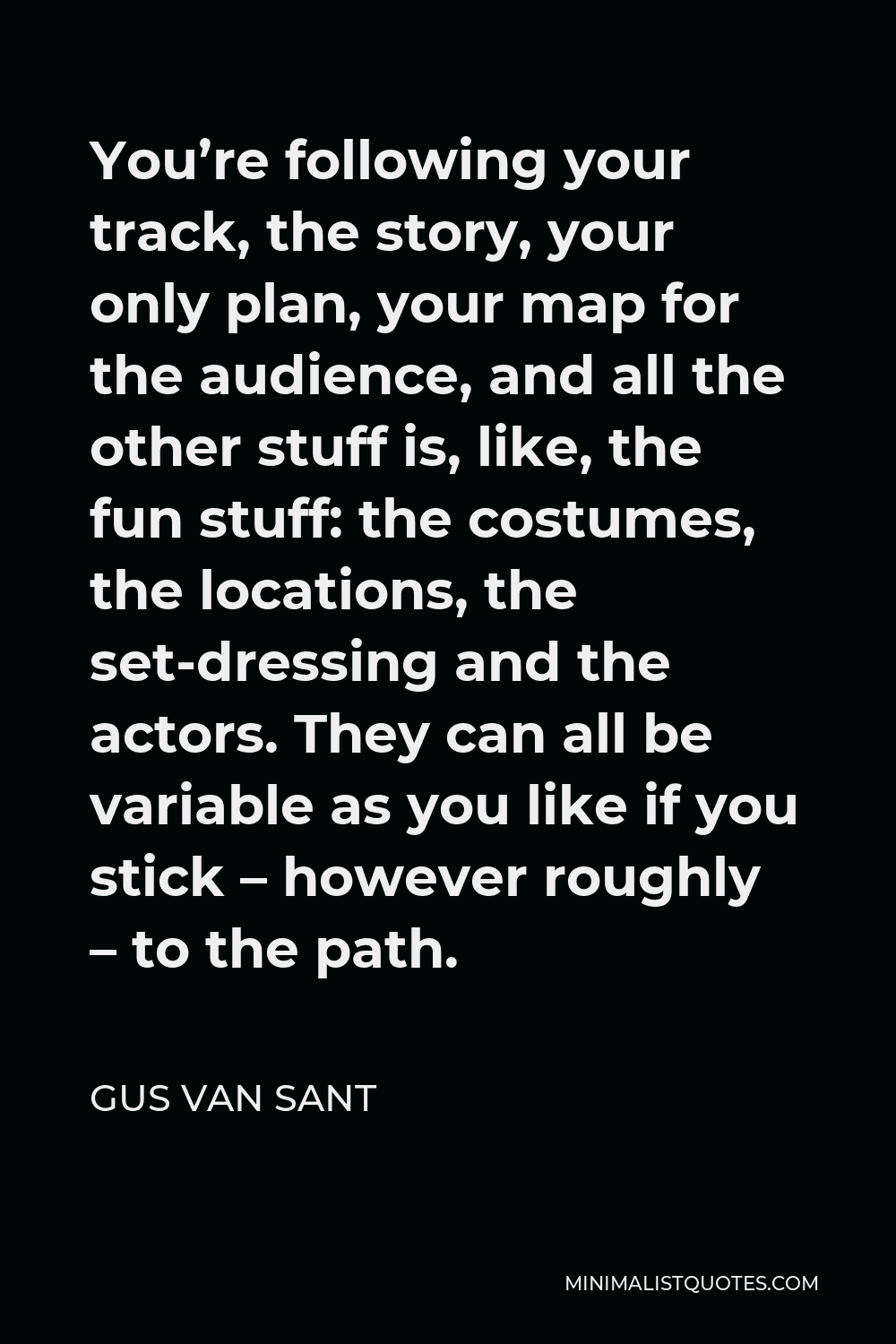
You’re following your track, the story, your only plan, your map for the audience, and all the other stuff is, like, the fun stuff: the costumes, the locations, the set-dressing and the actors. They can all be variable as you like if you stick – however roughly – to the path.
GUS VAN SANT
